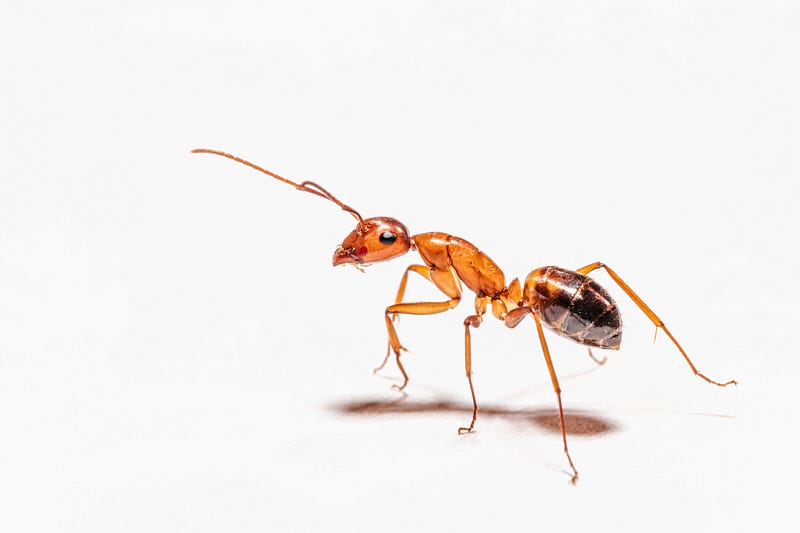Finding Innovative Allies in Cancer Detection: Ants vs. Dogs
Written on
Chapter 1: Ants as Cancer Detectives
In a fascinating twist on the classic film "Alien versus Predator," we're examining the roles of ants and dogs in detecting cancer in humans. A groundbreaking study from researchers in France has positioned ants as potential new allies in this crucial field.
While many are familiar with the exceptional olfactory skills of dogs, it's worth noting that they aren't the top contenders in the scent detection hierarchy. According to Smithsonian Magazine, dogs are remarkable, but there's another animal that is often described as a "walking dictionary of odors." If you guessed elephants, you're right! Paul Waggoner, the associate director at the Canine Detection Research Institute, points out that rats, mice, and even jackals have comparable olfactory abilities.
However, when it comes to temperament, German shepherds take the lead. The challenge lies in training and maintaining detection dogs, which can be both difficult and costly. As a result, researchers are exploring alternatives, including mice, locusts, honeybees, and now, ants.

Cancer Detection: The Ant's New Role
Having had the privilege of studying under renowned evolutionary biologist E.O. Wilson, I have developed a keen interest in ants. As a cancer specialist, the headline "Cancer-sniffing ants prove as accurate as dogs in detecting disease" sparked my excitement.
Scientists in France have demonstrated that they can swiftly train a specific species of ants to identify cancer cells, achieving accuracy levels comparable to those of dogs in detection roles. The study focuses on the ant species Formica fusca. Previous knowledge indicated that ants could detect certain volatile organic compounds (VOCs), which are unique to specific cancer types.
Could these findings be integrated? Researchers sought to find out if ants could indeed be trained to identify cancer cells. In as few as three training sessions, the ants successfully distinguished between cancerous and non-cancerous cells with accuracy akin to that observed in canine studies.
The researchers concluded that:
“Formica fusca ants can detect the VOCs emitted by cancer cells. A conditioning protocol based on just three training trials allowed the ants to associate cell-derived VOCs with a reward. Ants could i) detect the presence of cells in a medium, ii) differentiate cancerous VOCs from non-cancerous ones, and iii) tell apart two cancerous samples based on VOCs.”
Remarkably, these ants demonstrated the ability to identify two distinct types of breast cancer: the less aggressive Luminal A and the more severe triple-negative variant. Furthermore, historical research suggests that individual ants can perform up to nine detection tasks before their responses begin to diminish.
This study serves as a proof of concept; however, several hurdles remain before ants can be effectively utilized for cancer detection in real-world scenarios. Nonetheless, it’s thrilling to witness ants showcasing yet another extraordinary capability.
Thank you for reading today.
In the first video, titled "New study finds ants can be trained to detect cancer | Your Morning," experts discuss the implications of this innovative research and its potential impact on cancer detection methods.
The second video, "Dogs Can Smell Cancer | Secret Life of Dogs | BBC Earth," highlights the impressive abilities of dogs in cancer detection, providing a comparison to the findings regarding ants.
Disclaimer: The information provided in this blog is for educational purposes and should not replace professional medical advice. For medical concerns, please consult a healthcare provider. I am not liable for any risks or issues arising from the use of information presented here.